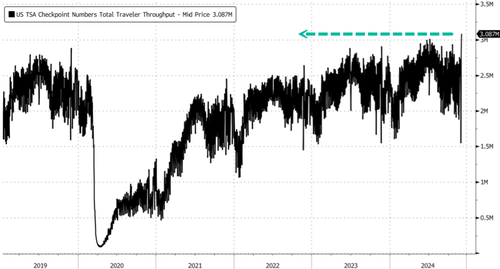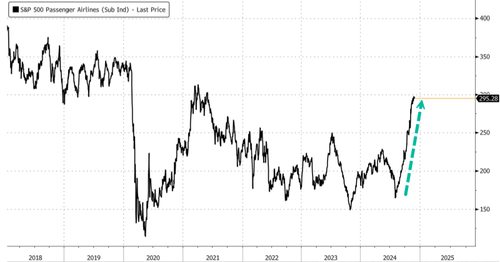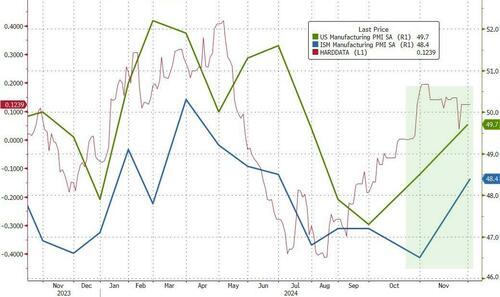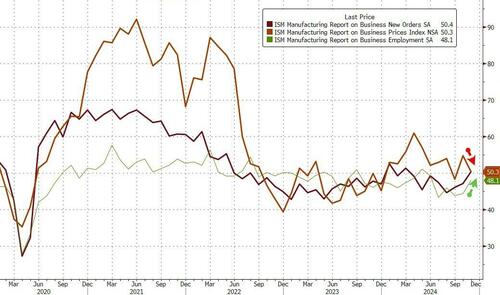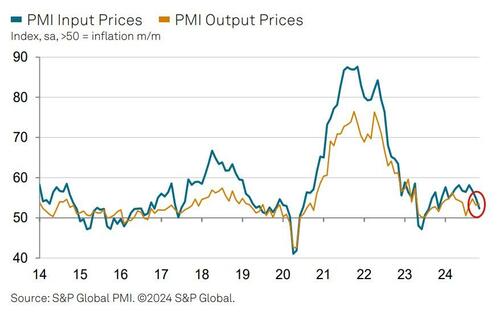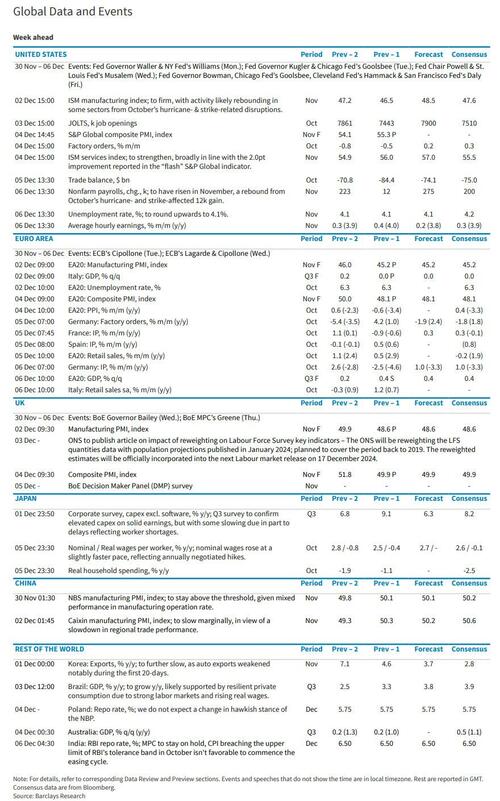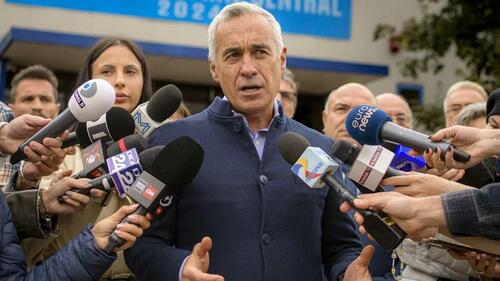Authored by Andrew Korybko via Substack,
Putin doesn’t hate the dollar and actually wants Russia to once again be able to use it with its partners for reasons of convenience, but it was the US that forced his country to de-dollarize and pioneer alternative financial instruments out of necessity.
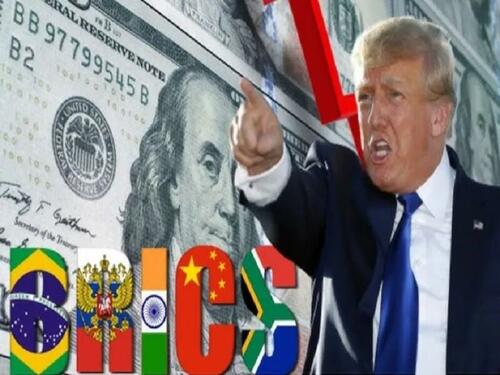
Trump threatened over the weekend to impose 100% tariffs on those BRICS members that either help create a new BRICS currency or back any replacements to the dollar. This was in response to reports over the past year of Russia’s BRICS chairmanship about this group’s alleged plans. Influential members of the Alt-Media Community fueled this speculation with their wishful thinking claims, but the last BRICS Summit didn’t achieve anything of tangible significance, which was explained here.
Neither BRICS’ most passionate enthusiasts nor its most zealous critics alike can admit that no new currency is on the horizon and none of its members’ currencies will replace the dollar. While it’s true that they’re using national currencies more frequently, this was only due to the need to work around the US’ unilateral sanctions on Russia that were imposed after its special operation. Russia is still an energy and agricultural superpower so its partners couldn’t comply with them without hurting their interests too.
Putin also declared during early September’s Eastern Economic Forum that “we are not conducting a policy of de-dollarisation. We did not renounce settlements in dollars; they denied us such settlements, and we were simply forced to look for other options; this is it…Why are they acting this way? They probably expected everything to crumble here. This is why they made it impossible for us to use the US dollar.” He then added the following a month later during a meeting with BRICS journalists:
“[The US] ruined relations with Russia, constantly impose sanctions and this, eventually, negatively affects the US and the US dollar. The whole world started contemplating whether US dollars should be used since the United States, for political reasons, restricts the use of the US dollar as a universal international payment unit. Everyone started considering this, and the volume of US dollar use is slowly, in small increments dropping both in settlements and currency reserves.”
Putin elaborated even more on this subject at a press conference after that summit:
“I believe this is a terrible mistake by the US financial authorities, because the strength of the US today is built on the dollar. And yet, they are cutting off the very foundation of their own power. It seemed to me that the dollar is like a sacred cow, something that should never be disturbed. But no, they have taken it into their own hands and essentially cut off its horns, stopped taking care of it, and instead are exploiting it recklessly…We are not engaged in a battle, our proposals are not set against the dollar.”
As can be seen, Putin doesn’t hate the dollar and actually wants Russia to once again be able to use it with its partners for reasons of convenience, but it was the US that forced his country to de-dollarize and pioneer alternative financial instruments out of necessity. This is a far cry from how he’s misportrayed by friends and foes alike, each in pursuit of diametrically opposed ideological agendas, the false impression of which was responsible for Trump’s threats against BRICS after he fell for their claims.
The reality is that while de-dollarization trends exist and have sped up since the US’ unprecedented sanctions against Russia nearly three years ago, they’re nowhere near challenging the dollar’s dominance, and a lot of what’s already been achieved can realistically be reversed or decelerated. All that Trump has to do is lift these selfsame sanctions, though he’s unlikely to do so unilaterally, let alone all at once. He’ll want to receive something from Russia first, but Russia might not be able to provide it.
Therein lies the dilemma that Trump’s found himself in. Incipient de-dollarization trends pose a latent threat to one of the pillars upon which the US’ unipolar hegemony is maintained. It won’t materialize anytime soon, but downplaying or ignoring it could prove disastrous in the long term. At the same time, while the solution of lifting the sanctions is simple enough, it’s politically unfeasible in the current context given domestic and international pressures.
From Trump’s perspective, while the dollar would greatly benefit from this, his personal reputation and his country’s international one could be greatly harmed by the perception of them conceding to Putin’s demand for lifting the sanctions without anything in return. Likewise, the concessions that Trump might demand of him for this could be politically unfeasible for Putin, who isn’t going to pull his troops out of the entirety of the territory that Ukraine claims as its own. A compromise must therefore be reached.
One possibility is that the US lets American investor Stephen P. Lynch purchase the bankrupt Nord Stream project if it soon goes to auction in a Swiss bankruptcy proceeding, the scenario of which was recently analyzed here, which could set into motion the lifting of some US sanctions on Russia. If the US no longer threatens secondary sanctions against those that use the dollar to purchase Russian energy and returns Russia to SWIFT, then China and India would likely revert back to the status quo ante bellum.
They’re the ones that are driving global de-dollarization trends via their massive import of discounted Russian oil, which has been paid for with national currencies that are transferred outside of SWIFT, so incentivizing them to return to “business as usual” would advance American interests. Other sanctions would remain in place and only be lifted in phases per compliance with whatever ceasefire, armistice, or peace deal is ultimately agreed upon, while Russia probably will never see its seized assets again.
It’ll therefore be impossible to ever restore all the trust around the world that was lost in the dollar, thus meaning that the strategic imperative driving de-dollarization trends will remain, but Trump can still decelerate these trends through the proposed means if he has the political will. Gradually lifting some of the sanctions, first on Germany’s Russian energy imports via what might be the US-owned Nord Stream project and then on everyone’s import of Russian energy (using dollars and SWIFT), would go a long way.
If he does nothing, however, then he’ll have to face the growing challenge posed by de-dollarization trends. No BRICS currency is about to be unveiled nor will any members’ currency replace the dollar anytime soon, but the increased use of national currencies and non-SWIFT platforms for conducting trade between countries of the Global Majority will eventually create problems for the dollar. It’s therefore better for the US to rein in this trend, which it can do by lifting the main sanctions on Russia.
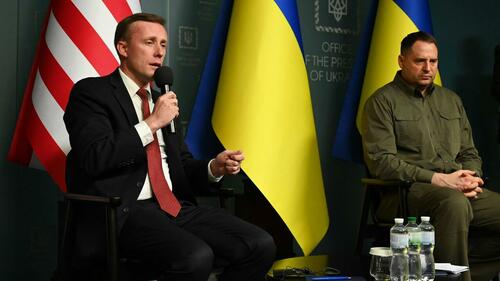


 Syrian warplanes bombed Al Nusra headquarters and operations rooms in Idlib a short while ago.
Syrian warplanes bombed Al Nusra headquarters and operations rooms in Idlib a short while ago. 